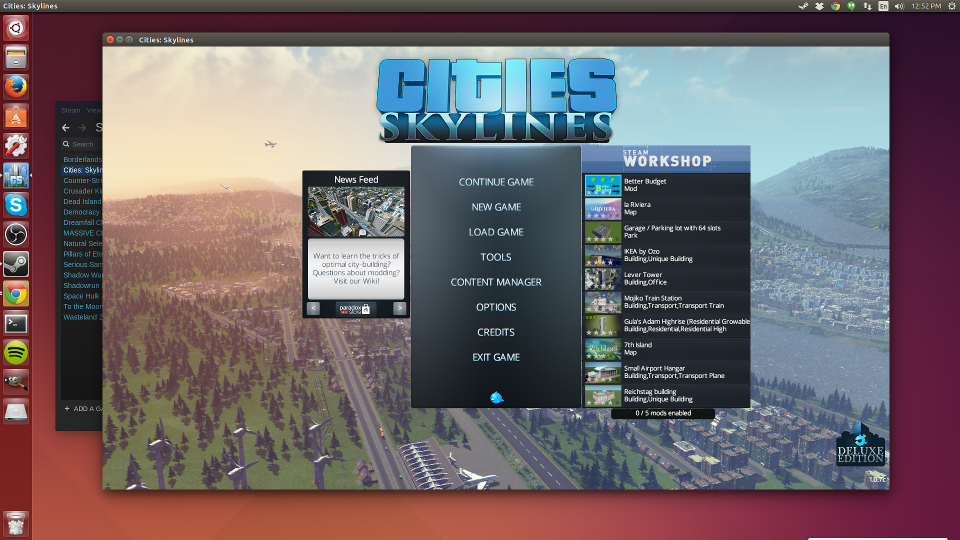I don’t think that this will come as a surprise to anybody who knows me, or is familiar with this site, but I love Linux. I use Linux as my primary operating system; I have done all of the development, all of the writing for this site and all of my everyday computing on Linux. I only have one reason to boot to Windows and that is to play video games. Thankfully, the only justification for having to pay the $150 necessary to put Windows on my computer is slowly becoming a thing of the past; thanks to valve supporting Linux, not only through a native Linux client for Steam but, also through the release of Steam OS, a Linux distribution itself.
Previously there had been ways to be able to play games, developed for Windows, on Linux. This was achieved typically through some sort of emulation or abstraction layer using programs like Wine and Cedega. These programs allowed most games to run, but they were not ideal. Usually the game would occasionally behave oddly, and sometimes Linux users will find themselves getting banned from online games that they play because they are using these programs.
A version of a game programmed specifically for Linux is always preferable to using Wine, but porting a game to Linux poses a significant challenge. Linux isn’t like Windows or even OS X where most of the installed software will be the same computer to computer. Different versions of Linux, called “distributions”, can sometimes behave very differently despite them being the “same” operating system. These differences can be minor or change the entire system in profound ways. This is why a lot of programs need to build versions to support Debian and Red Hat / Fedora, two of the most popular Linux distributions. The diversity of Linux makes it a complicated platform to support and due to this it is frequently ignored as being too expensive to develop for and not giving enough of a financial return. After all the current amount of desktop computers running Linux is less than 2%.
When Valve announced support for Linux, one of the first things that they announced was that they were only going to officially support one distribution, Ubuntu, instead of the multitude of different distributions that currently exist. This cuts down on the additional work that developers would need to do to properly support the operating system by taking out all of the wildcard elements from the platform. This was the precursor to something even larger than just the indie games slowly making their way to Linux. With the announcement of SteamOS, larger and higher profile games have announced that they will have support for SteamOS and by extension Linux. This is a day that I, legitimately, thought would never come, and I get to experience all of this first hand and tell you all about it.
Not only is there now one targeted distribution that developers can support but many of the tools that developers have been using to make games have built-in support for Linux allowing more games than ever before to be able to run on this Operating System. Unity and GameMaker Studio both have options to export your game to Linux directly from the tool. This has allowed games like Wasteland 2 and Gone Home to have support for Linux right at launch.
Because of these announcements I felt it necessary to reward the developers that took a risk on Linux leading to the decision that if a developer released a Linux version of their game, then I would only play the Linux version. I am going to be able to experience the first genuine attempt of a major game distribution platform attempting to support my favourite operating system first hand and it will be my privilege to tell you my experiences.
Throughout this entire experience I will be coming back from time to time to write updates on my gaming experience on Linux. I will talk to you about all of my experiences, ranging from small little independent titles to great big “AAA” games, and everything that exists in between. I will be writing about technical problems that I experience and my solutions to them; but I hope that I will be coming back frequently to talk about how much fun I am having using my favourite operating system as a part of my favourite hobby.
Believe it or not but this will really be making a difference. Valve does keep track of information like this, they really want to know if people are using Ubuntu or SteamOS. They do this so that they will be able to provide this information to developers and show them that games that support Linux or Steam OS are able to sell well on the platform. I hope that by not only playing games on Linux but also by talking about them I will be doing my part to help.
Thank you and stay tuned for more.
Steven.


